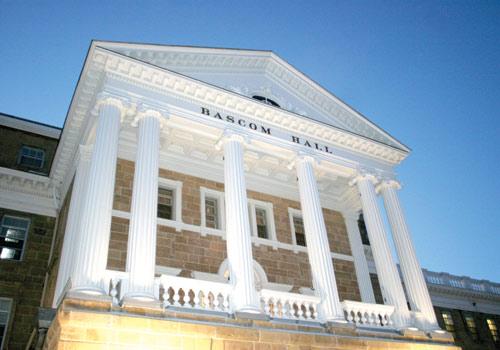Over the past year, I’ve had the opportunity to serve on the University of Wisconsin System Student Representatives Executive Board. As I look at the past projects I’ve worked on and think of the discussions I’ve had and the different UW campuses I’ve visited — it’s hard not to think of the potential the governing body has in the upcoming year.
Currently, there are 26 schools in the UW System. Whether it’s a larger school, like UW-Milwaukee or UW-Madison, or a smaller school, like UW-River Falls or UW-Baraboo County, each UW System school has their own student governments — with their own issues, programs, events and leaders.
But when issues are bigger than the individual school, things change a little. No longer is it an issue where every university works independent of one another to accomplish their own goals. Rather, the issue becomes a collective one. From Green Bay to LaCrosse and everywhere in between, some issues affect students regardless of where they attend and have equally devastating consequences.
UW System plan to merge universities fails to account for student needs
In times like these, a collective space where leaders of different student governments can come together and strategize about certain issues is the difference between making an impact or not. Having a governing body which allows different campuses to collaborate on issues which affect the state as a whole, and working from there to collaboratively find a solution.
That collective space is comprised of the UW System Student Representatives, the student governing body of all 26 UW schools. They are responsible for the discussion, debate and passage of legislation while representing the student body of each individual UW school as part of a comprehensive whole.
The UW System Student Representatives have lobbied politicians on segregated fee opt-outs, Perkins loans and immigration laws. The organization serves as a network between system schools, allowing its leaders to give each other advice on how to engage their students in their university, how to lobby the Board of Regents and how to truly lead a campaign on certain issues.
State issues require united, state responses. Twenty-six different schools working on one issue in 26 different ways doesn’t work. Neither does one school working on a state issue without any support or help from others. When it comes to truly advocating for all UW students statewide, UW System Student Representatives is the way to go.
Sadly, though, the organization doesn’t get much coverage on certain issues. Not many people know about UW System Representatives. While it’s unfortunate many students don’t know about UW Reps, it’s quite understandable as the organization itself struggles mightily with outreach .
Students must maintain involvement in fight to protect segregated fees
On larger issues, contacting ASM or enacting on-campus discourse on the internet is far from enough. When Wisconsin as a whole won’t pass commonsense legislation like medical amnesty, don’t just stop at the smaller, more well-known talking points. Reach out to UW System Student Representatives, show them you truly care about the statewide issues at hand and work on the issues not just on your own, but with 180,000 students from across the state.
UW System Student Representatives is here to represent all 180,000 students from 26 schools to make sure we collaborate on big issues. But to collaborate, the UW System Student Representatives need to hear the concern, complaints and suggestions of the study body it represents. You have a voice, Badgers — let it be heard.
Yogev Ben-Yitschak ([email protected]) is a sophomore majoring in marketing. He is also the former Press Office Director for the UW System Student Representatives.














